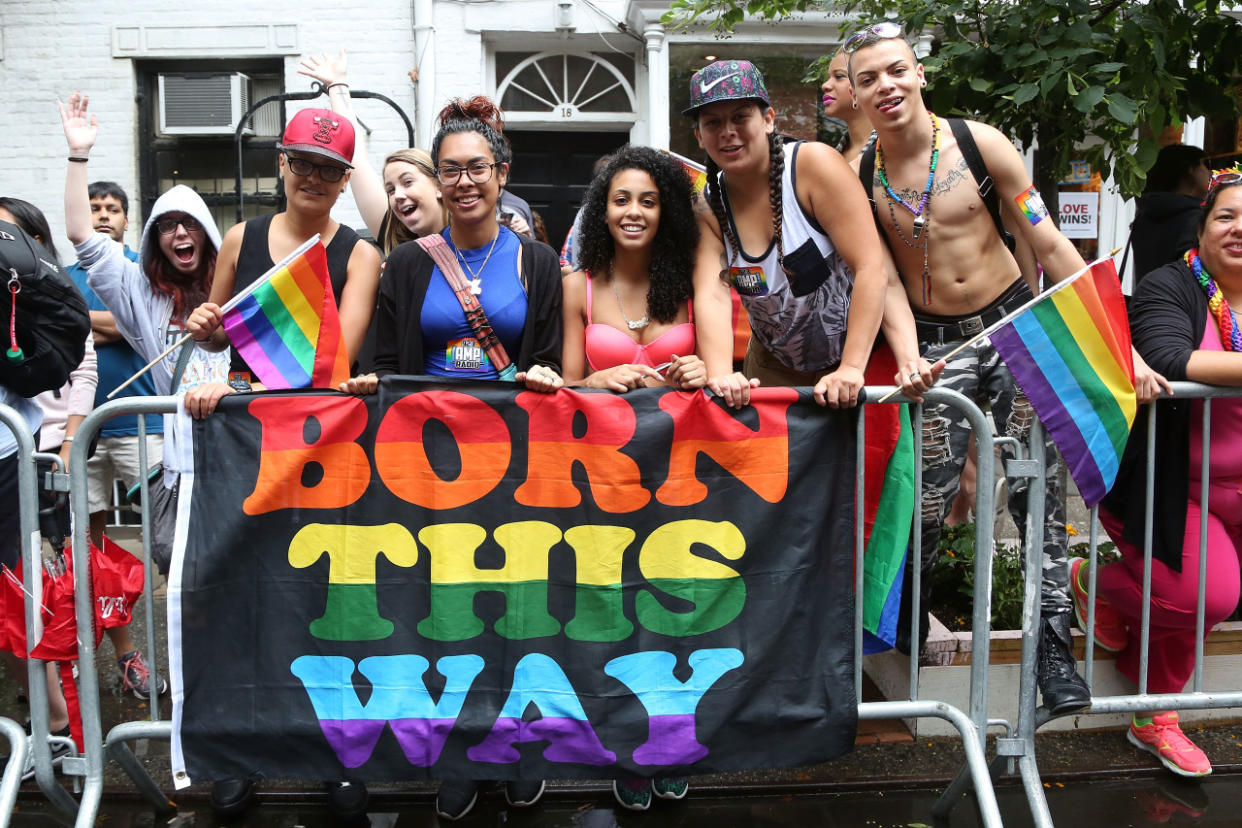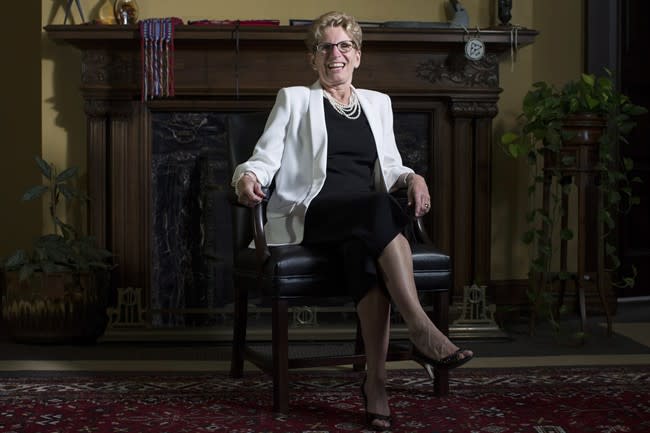How different is it to ‘come out of the closet’ in 2016?

(Photo: Getty)
When Michael Bach came out at age 16, he says it was a move that confirmed the world’s worst-kept secret. Nevertheless, the founder and CEO of the Canadian Centre for Diversity and Inclusion says identifying himself as gay wasn’t easy.
That’s because it was 1986, a time when people were far less open about sexual orientation than they are today.
“There was a lot of verbal and physical abuse by students at school,” Bach says. “There was a significant lack of understanding on how to deal with a kid who wasn’t like everyone else….It wasn’t necessarily easy for my parents. They really did struggle with this, but they were as supportive as they could be.”

(Photo: Michael Bach)
Bach’s coming out coincided with the beginning of the AIDS epidemic, and he remembers his mom being worried that he would become HIV-positive and die.
Today, Bach’s parents couldn’t possibly be more supportive of their son. And things have changed dramatically over the last 30 years when it comes to coming out.
Consider the experience of Michael Dennis, who goes to high school in Vancouver. He came out last year, at the end of Grade 10. He told his high-school counsellor first, then his best friend, and then his parents. He’s had no bullying or harassment, and he’s surrounded by friends who are members of the LGBTQ community as well as their allies.
ALSO SEE: Wage gap exists for LGBTQ Canadians, and current research doesn’t tell the full story
“Coming out changed my life,” Dennis says. “I have received nothing but love and support.
“It was still hard to do,” he adds. “I broke down in tears in the counsellor’s office because it was so emotional. But it’s been all positive.”

(Historic pride parade on Saskatchewan First Nation. Photo: CBC)
Bach says it wasn’t uncommon back in the ‘80s for people living in small towns to feel they had no choice but to move to a big city in order to come out to avoid being stigmatized or abused. Now, places like Prince George, in northern B.C., have their own Pride festivals.
Technology has made the process of coming out easier for many people too. Online support groups and apps that help connect people from the LGBTQ community help people realize that they’re not alone.
“When you’re coming out, the first thing you think is you’re the only one,” Bach says. “But when you’re able to get on Facebook and join a LGBT social group relieves the burden of feeling you’re the only one.

(Ontario Premier Kathleen Wynne. Photo: The Canadian Press)
“The fact that so many celebrities, athletes, and politicians are openly LGBT is also a very positive thing; it sends a very strong message,” he adds. “You don’t feel so alone when you know premier of Ontario is a lesbian. It doesn’t feel so daunting.”
And while things have improved since he was a high-school student three decades ago, there’s still much more that needs to change to make the world a safe place for those who are coming out. “I don’t think it’s nirvana yet,” Bach says.
ALSO SEE: Life after going viral for ‘Pride baby,’ ‘Queer Hutterite’ and others
The first thing people typically worry about is how their parents are going to react, he says.
“If you hear your father making fag jokes, you’re probably going to be a little bit afraid and maybe not come out till college or university or you’ve left house because you know you’re going to be safe,” Bach says. “Parents [of young kids] have grown up in a world where being LGBT is commonplace, and they accept kids, but homophobia and transphobia still exist.”
For proof, look no further than the comments made last fall by Mississauga-Malton Conservative Party candidate Jagdish Grewal. He defended therapies that attempt to turn gays straight, and penned an editorial that referred to homosexuality as “unnatural behaviour.”
And while the Conservative party recently voted to delete sections of the party handbook supporting legislation to define marriage as being between a man and a woman, a total of 462 delegates opposed the motion.

(Justin Trudeau hoists the gay pride flag for first time on Canada’s Parliament Hill. Photo: Reuters)
Then there are far more extreme realities facing people who are gay. It’s still illegal to be gay in more than 70 countries, including Iran, Singapore, India, Myanmar, Egypt and Morocco. Punishments range from forced psychiatric treatment and lifelong prison sentences to hard labour and death.
Canada, meanwhile, has endorsed National Coming Out Day, which takes place every October 11. Bach was heartened to see Prime Minister Trudeau raising the Pride flag on Parliament Hill at the start of national Pride Month and Toronto Mayor John Tory do the same.
“That’s pretty incredible,” he says. “That’s all having a strong impact in helping people and sending a message it’s OK [to be gay]. We’ve still got a ways to go, but it’s certainly getting better. Times are really changing.”
Do you think the idea of “the closet” still exists? Let us know your thoughts by tweeting to @YahooStyleCA.



